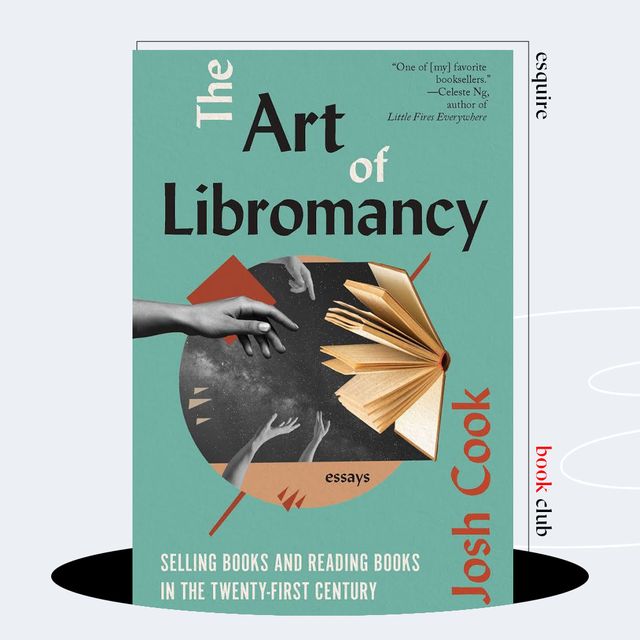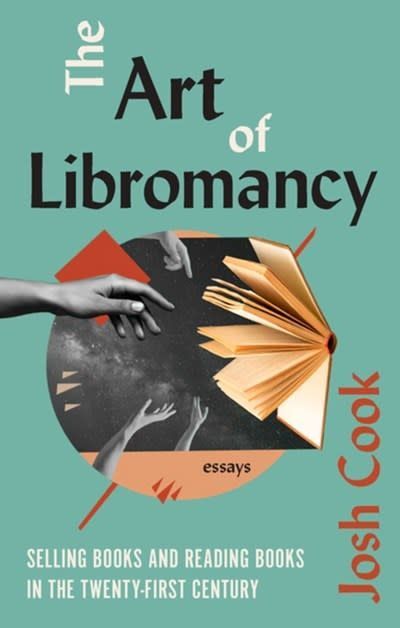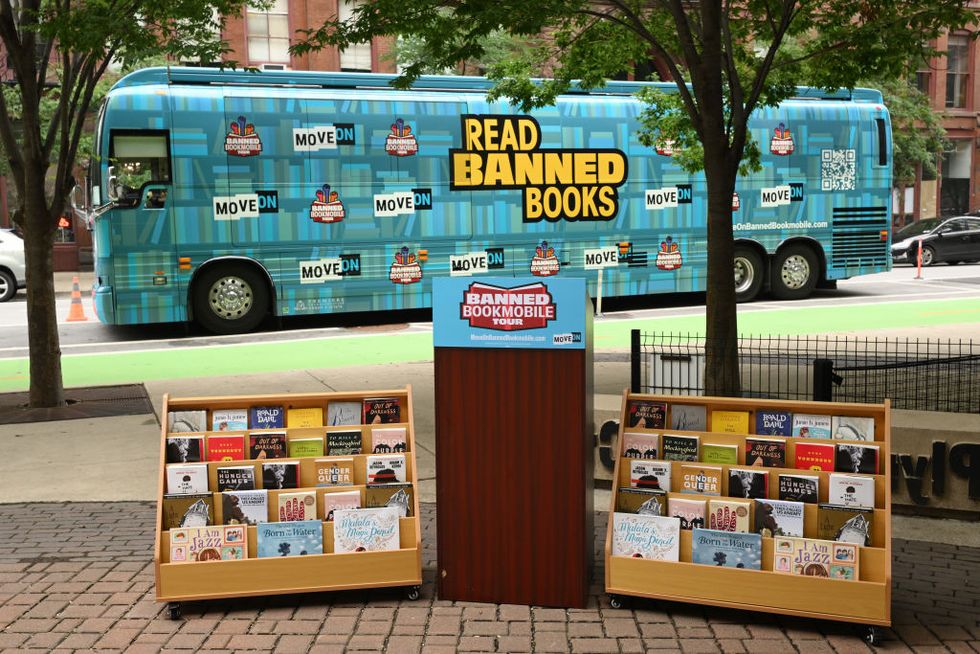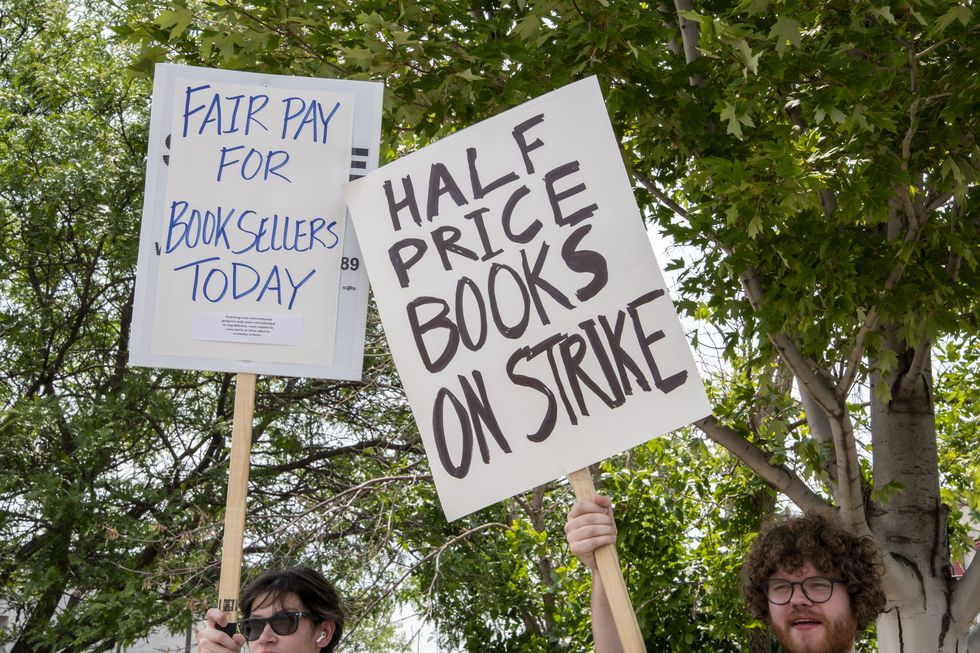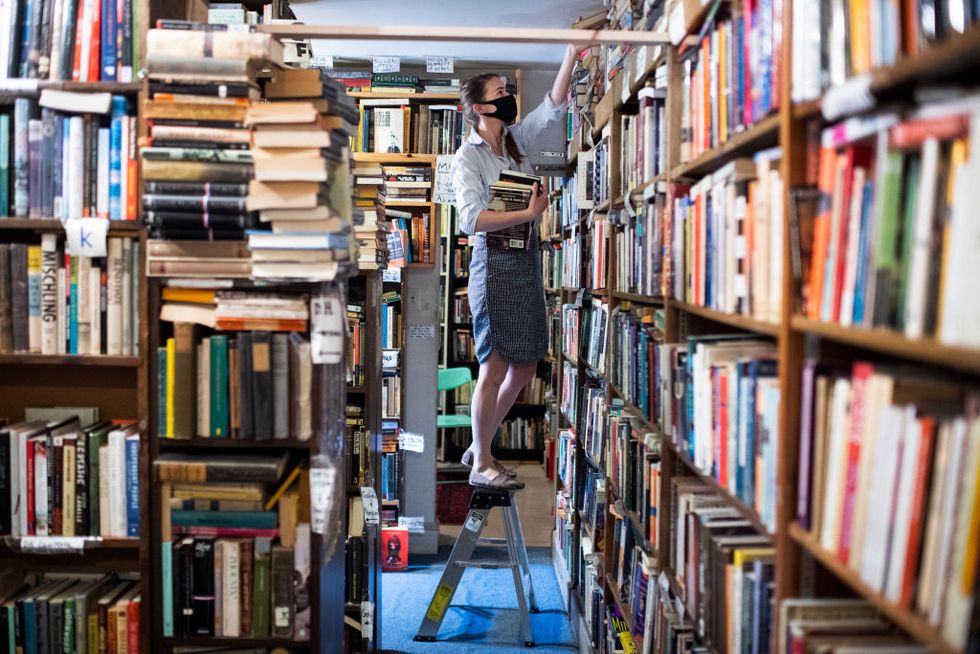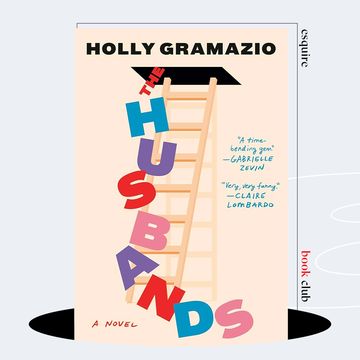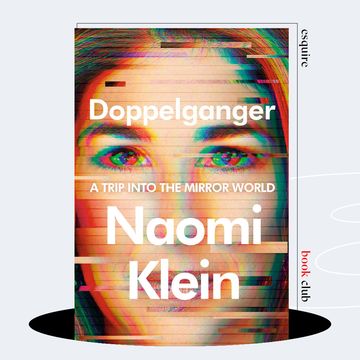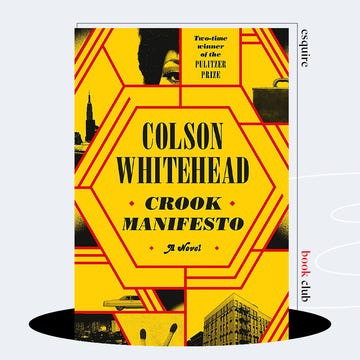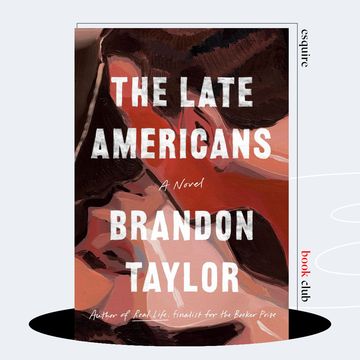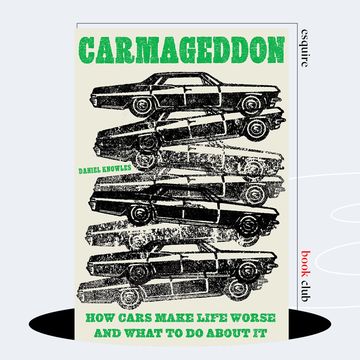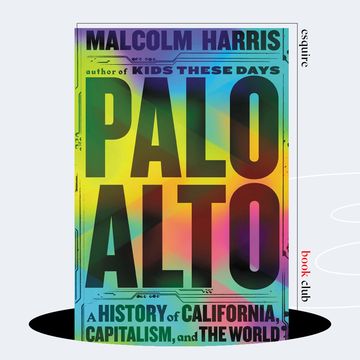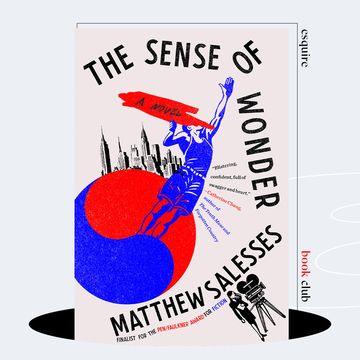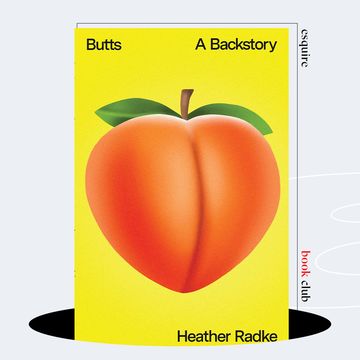“There is no such thing as a ‘nonpolitical’ bookstore,” Josh Cook writes in The Art of Libromancy: On Selling Books and Reading Books in the Twenty-First Century. In the age of book banning, publishing industry consolidation, and the pandemic’s lingering aftershocks, Cook’s words ring with frightening truth.
The Art of Libromancy, new on shelves today, taxonomizes the joys, challenges, and disruptions of independent bookselling in 2023. Cook, a veteran bookseller and co-owner at Porter Square Books in Cambridge, Massachusetts, writes from the front lines of the sales floor and the stockroom, dissecting how booksellers evaluate what to sell and how to sell it. From making recommendations to organizing display tables to stocking books by politicians, these seemingly granular decisions are matters of moral urgency; as Cook reminds us, “People use books to develop their morals, support and test their belief structures, come to conclusions about the state of the world, and make voting decisions.”
The massive systemic pressures facing bookstores are enough to make anyone feel powerless, but Cook insists that booksellers have a powerful role to play in advancing social justice and shoring up community bonds. “Person to person, display to display, reader to reader, event to event,” he tells Esquire, “book sales have a real opportunity to shape publishing and the world of books in a way that creates a more sustainable books ecosystem and also a more sustainable world.”
Cook Zoomed with Esquire to discuss the view from ground zero of bookselling, from reasons for alarm to reasons to be hopeful. This interview has been edited for length and clarity.
ESQUIRE: What are the biggest challenges facing bookstores and booksellers nowadays?
JOSH COOK: The challenges facing society are the same challenges bookstores face: climate change, the threat of fascism in America, the problems that capitalism creates in communities. All of that makes it more difficult to sell books because people are struggling—they don't have the money they should have for the amount of work that they do, and they don’t have the leisure to enjoy books and connect with the bookish community. We need to have booksellers and readers to sell books, but some parts of our society make that very difficult.
Looking closer at bookstores themselves, one of the biggest challenges is, of course, Amazon. From its inception, Amazon’s goal has seemingly been to put every other retailer out of business, and they got their start going for bookstores. Independent bookstores have made a compelling argument for their readers as to why it’s important and in their best interests to pay 40% to 60% more for a title with them than they would pay at Amazon. That’s heartening—and there have been hopeful shifts in how monopoly and antitrust legislation are enforced in the United States. The next thing is consolidation in the publishing industry. There are five publishers that publish the vast majority of books in English, but that consolidation also applies to printers and wholesalers. If one of these giant companies makes a decision, it has an immediate impact on bookstores.
These systemic problems are enough to make anyone feel powerless, but you argue that booksellers can create change. What can booksellers do to advance social justice in their stores?
The most important thing booksellers can do is always ask themselves, Can I do more with this recommendation? Can I do more with this display? Can I do more with this event? You want to bring great reads to your community, and you want to recommend a book that someone is actually going to buy. But I think there's space in those conversations, in those displays, in those events, to say, “Is this book a book that makes the world a better place? Is this book a book that also supports my values? Is this a book that’s going to add more to the community?” It’s about understanding that you’re always an advocate as well as a bookseller. For whatever reason you decide to put a book in someone's hand or place it on display, you’re an advocate for that book. That’s a responsibility, but also a power. Person to person, display to display, reader to reader, event to event, book sales have a real opportunity to shape publishing and the world of books in a way that creates a more sustainable books ecosystem and also a more sustainable world.
In the book, you write, “There's no such thing as a non-political bookstore.” The choice of if and how to sell books by right-wing writers is one of the most obvious political decisions facing bookstores. You argue that genre can be a helpful tool to solve this challenge. How can genre usefully help us engage with the problem of right-wing books?
Genre is a way of providing context and framing for the books that you sell. Sometimes that’s just letting someone know that one book is more likely to have robots and lasers in it than another book. Alex Shepherd wrote in The New Republic that if fact checking was required in nonfiction books, that would pose an existential crisis for conservative publishing. So if a bookstore wants to represent a broad spectrum of contemporary American political thought, but also wants to say that these books are nonfiction, that’s a challenge. One way you could solve that problem is to add context through genre. “Politicians and pundits” was my idea for our store. I thought we should separate political talk show hosts and politicians from political science. That’s not to say that politicians and pundits can't write truthful books, but that when you present it in that context, your customers recognize it as something different. It’s hard to know what kind of impact this would have, but it has the potential to produce a really interesting conversation. Genre is just an agreement, and agreements can change.
As book bans surge in libraries and schools, I've been troubled to see it expanding into bookstores. What are you seeing and hearing on the front lines?
The biggest threat right now is in Texas, which has basically made it impossible to sell books to schools. This is really important to know in terms of national context. It's easy to think, “It’s just happening in the red states,” but because Texas is such a huge market, their educational decisions have an impact on educational publishing. I saw recently that Follett was asking its publishers to start pre-screening their books for continued sale in Texas. The impact of that is much broader than Texas.
The most important thing to know about book bans is that people who believe in them will go as far as they can. If they can only get to school libraries and public libraries before pressure or legal systems stop them, that's as far as they'll get. If they can get to bookstores, they will; if they can get to publishers, they will. If they can get to writers, they will; if they can get to readers, they will. In the bookstore world, there’s an appropriate level of alarm. I can’t speak directly to the organizing efforts of the American Booksellers Association or PenAmerica, but I know they’re working on it. There are reasons to be really scared, but there are also reasons to be hopeful.
What are those reasons to be hopeful?
No one is treating this as an isolated thing. I also think it’s clear that the vast majority of people don't support book bans. It’s clear from reporting on the groups leading these challenges that they’re a fringe minority—it’s just that they’re well-funded, well-organized, and committed to imposing their views on other people. Every time they fight and lose, that’s a reason to be hopeful. The question is: how do we get the majority into avenues of power where they can fight back and create the community that we actually want?
Another sea change we’re seeing in bookselling is a rise in unionization efforts. Do you feel that there's a groundswell among booksellers to join the labor movement?
I do. One of the challenges that bookselling has always faced is the idea of vocational awe—the sense that because you’re working with books, doing community work in the arts, that everything inherent about you and what you do will be positive. That’s just not true and it’s never been true, though it’s been a useful tool for books and other creative industries to convince people to work for far less than they’re worth. During the pandemic, this illusion was punctured. Bookstore owners and corporate America in general said, “I know you're dying, but go to work anyway.” A lot of questions arose from that—and once you start asking those questions, it's not hard to ask about wages, working conditions, unpaid overtime, and everything that vocational awe.
One of the great solutions to these questions is, of course, unionizing. As a manager and owner, unionizing is also good for managers and owners, because it creates an empowered workforce—and in a community-heavy industry like bookstores, you want people to feel good about being there. Unionizing also means you've got a contract, so there's no more doubt anymore. There's no more judgment; there's no more having to figure things out. Small businesses often have to figure things out on the fly, but for stores that unionize, that’s all hammered out in negotiations, which provides some real pathways better communication, better production, and ultimately better sales.
Speaking of the pandemic—you write about what it was like to be a bookseller during that time. In that chapter, you mention “missed opportunities to use the crisis as a creative force to make significant changes in how we live, work, and sell books.” What were those missed opportunities?
One thing I really wish we’d figured out was a way to break the idea of convenient versus fast delivery. One of the biggest challenges we face in competition with Amazon is delivery time. If you order from Amazon Prime, it'll come in the next day. If you order from us, it’ll get to you in five to seven days—maybe more. But it's the same book, whether it arrives in two days or seven days, and it’s not an avocado—it’s not going to spoil in transit. I wish we’d found a way to really work at changing that perception. We could’ve said, “Because we now understand how this pandemic has stressed our supply chain, let's think about a new way to do things.” Once change your perspective from “as fast as humanly possible” to “reasonably fast,” a lot of things become easier. You don't need to have warehouse workers putting in 12-hour days. You don't need to have delivery drivers burning themselves out with heat exhaustion. You don't need to have booksellers staying late during the holidays to make sure orders get fulfilled. There’s an ecological impact to all this, too.
One thing we did learn from the pandemic is that community is an inherent value, and when we sell it, we do well. That clicked for lots of stores, but I'd love to see it click even more, because being a place where people can connect and feel safe is vital. There are ways we can increase our sales and pay our booksellers more by leveraging this community value without exploiting it.
What advice do you have about how best to patronize our local bookstores?
If you ever get a great recommendation from someone, go back and tell them or send an email to the store. It's really validating and energizing when we find out that you loved our recommendation. A few other things that don’t cost money: if you talk about books on social media, include a link to your favorite bookstore. Direct links sell more and don’t cost you anything, so it’s a great way to support bookstores without having to buy anything more. Also: if you’re someone who plans well, do your holiday shopping in October. If you know you’re going to spend $100 on books this holiday season, that $100 is great in October for a few reasons. At this point in the year, bookstores might be short on cash ahead of the huge holiday season. Spreading out shopping makes it easier to raise wages, because there isn't that cash crunch. Something else to consider: there will be people in our stores in December who if we do not help them, they’ll buy a Visa gift card for the reader in their life, so for those of you who are savvy bookstore shoppers, if we're not helping you in that on December 22nd at 7:45 PM, we’ll have more time and more energy to help those who otherwise would not be shopping with us.
The last thing I would say as a way to use bookstores well is this: take some risks. Walk up to a bookseller and say, “Give me your favorite book,” or, “Give me what I should read now.” Try it, read it. You'll maybe discover a genre you've never heard of before. You’ll discover authors you've never heard of before. You’ll get something really exciting, and if you don't like it, that’s okay. It’s all about being willing to be connected to the community, and willing to support your bookstores and booksellers.
